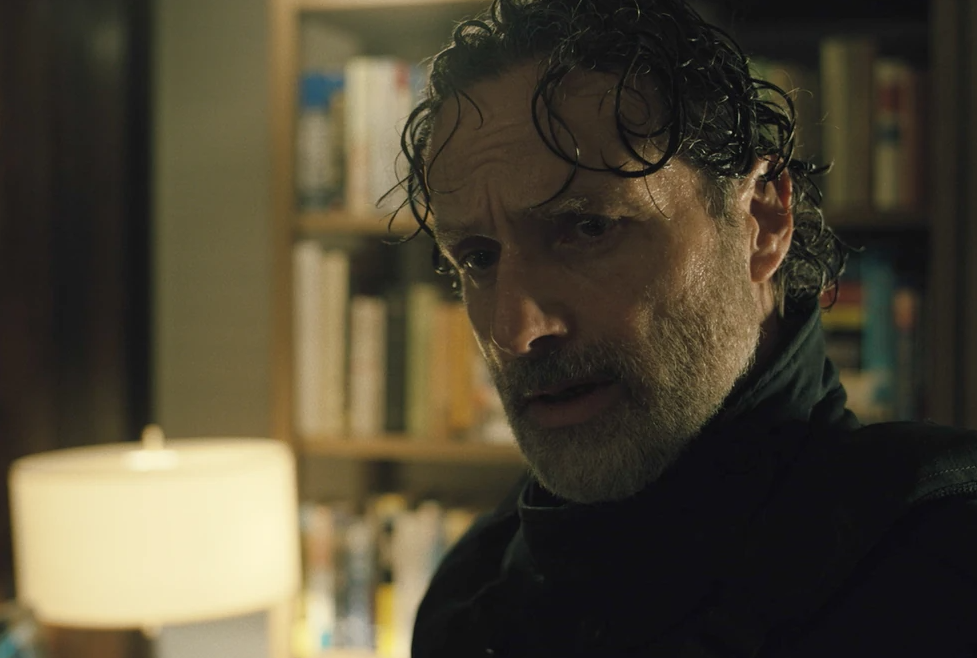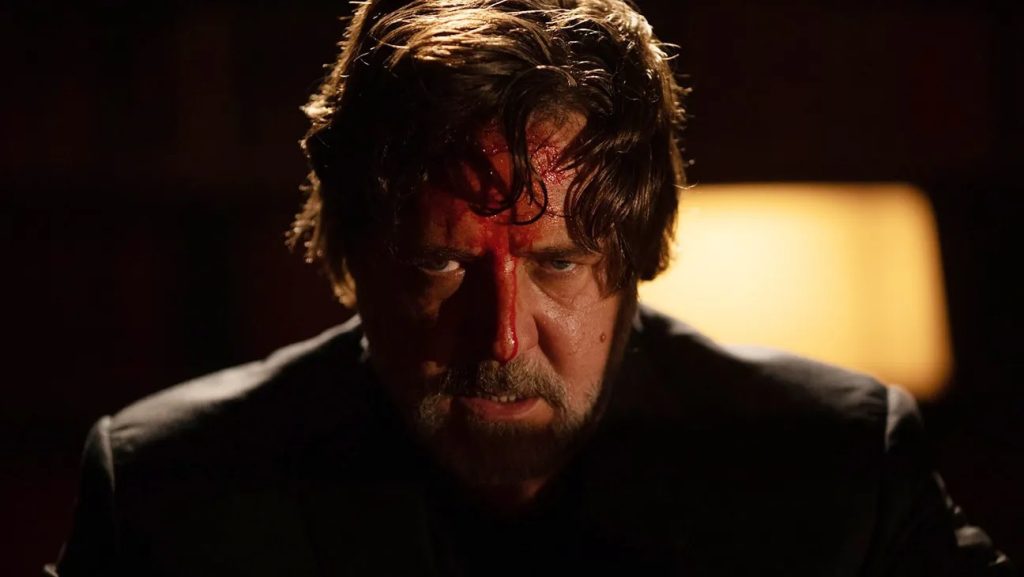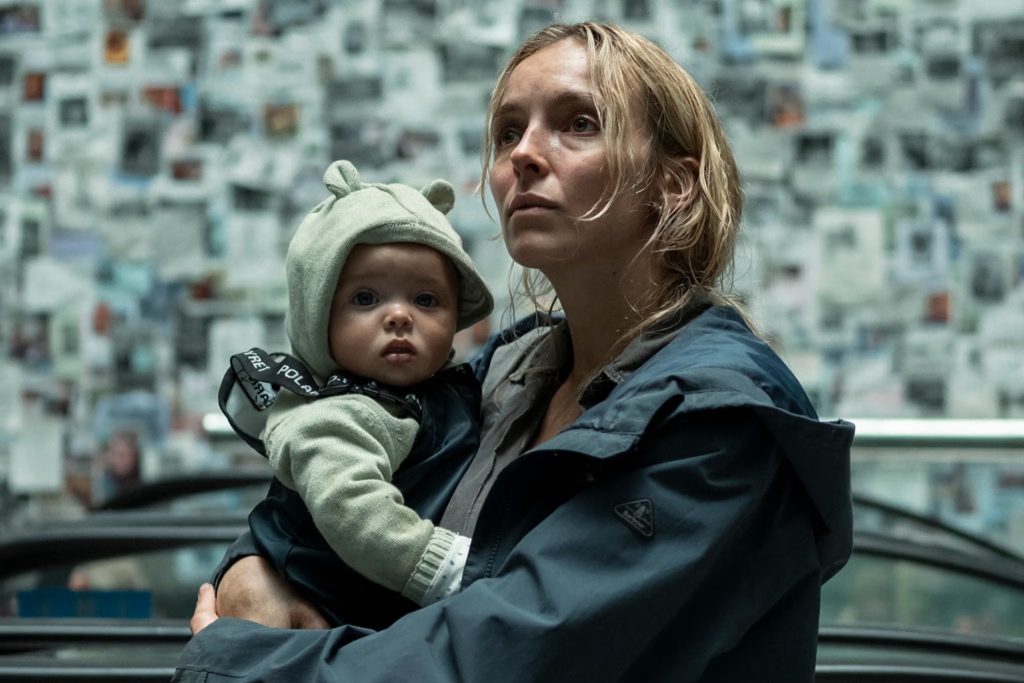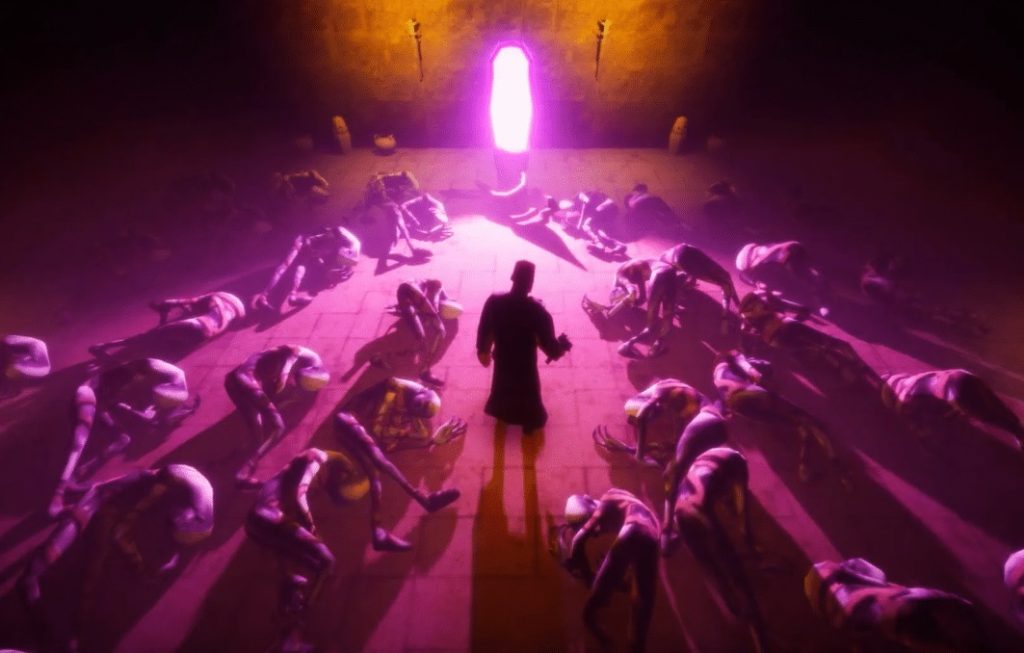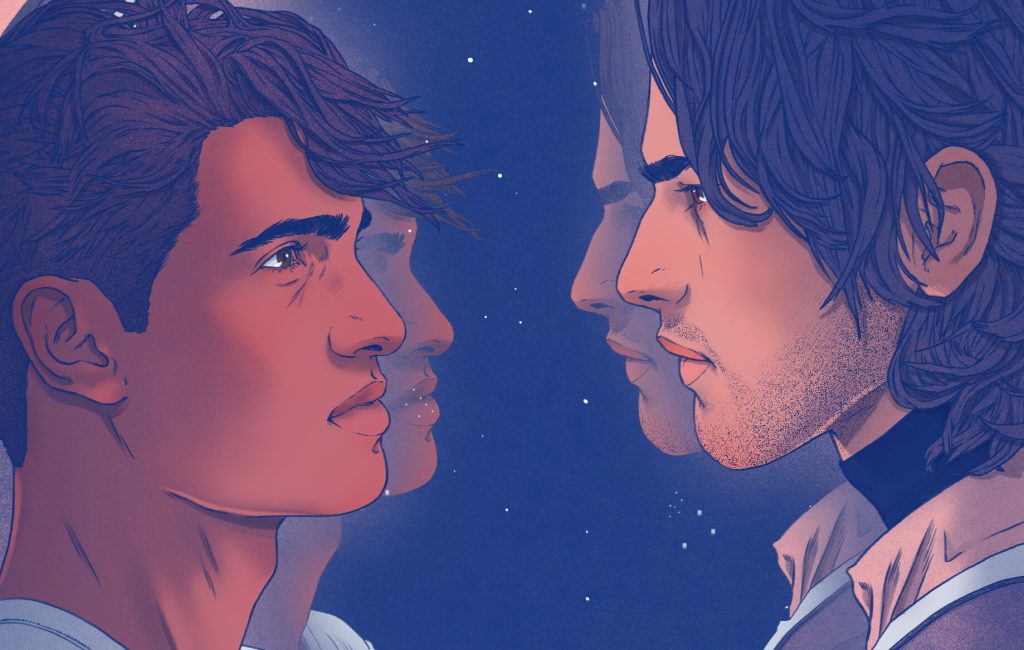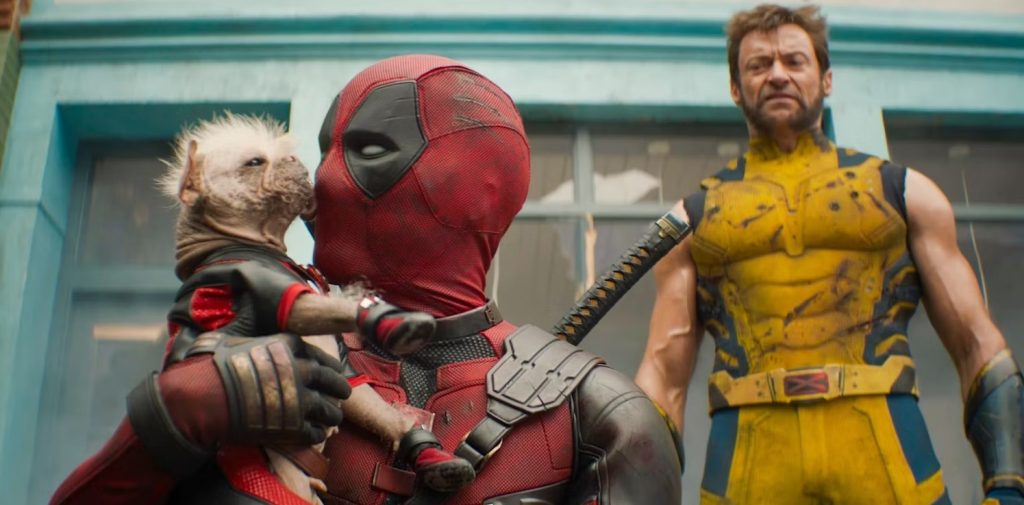Making a sharp left turn from the three episodes that have preceded it, What We confronts Michonne and Rick with a different sort of life-or-death challenge: an emotional obstacle course that their characters may find insurmountable and which their failure to conquer would shatter any remaining hopes of a future together.
Blending the fraught with the joyous, the drama is built around a theatrical two-hander, during which Danai Gurira and Andrew Lincoln seize the opportunity to try to act each other off the screen. While there are several energetic action sequences in the episode, What We is propelled by the intense showdown between this equally stubborn pair. This is an assured scriptwriting debut for Gurira, who here adds writer and showrunner to her Walking Dead credits.
The consequences of the reckless plunge from the CRM helicopter, enforced on Rick by Michonne, is wrapped up quickly through a montage of images that show the pair landing in the water and making for the shore. That’s because What We is not concerned with dramatising their immediate fight for survival in the aftermath of their escape. Instead, its focus is on their struggle to reach the kind of reconciliation that can allow them to decide where their lives will take them next.
The complex of buildings in which the two of them, soaked to the skin and exhausted, find temporary sanctuary provides a welcome contrast with the familiar derelict real estate that the show’s writers default to. Prior to the onset of the zombie contagion, this small estate of flats and linked courtyards is revealed to have been an off-grid settlement, committed to a life of communal self-sufficiency and sustainable technology. It becomes clear that this community successfully avoided the attentions of roaming walker hordes, only later falling victim to starvation as the residents succumbed to the calamity of failed crops and poor harvests. The result is a gaggle of emaciated undead, shuffling through the empty corridors.
Despite the loss of its human inhabitants, their buildings, powered by solar and wind, have persisted. The smart tech of the house, including automated environment controls (complete with robotic audio updates) and endlessly cycling computer screensavers, all add to the sense of abandonment. Although kept tidy and dust-free by cleaner bots, the setting has an atmosphere of melancholy and obsolescence, echoing the sense of impasse that Rick and Michonne have reached. That’s reinforced by the fact that they are the only (non-dessicated) humans to appear in the story (apart from fleeting glimpses in flashback of other absent members of their family).
Gurira has an impressive ear for dialogue and proves that she shares as clear an insight into the inner lives of these two characters as any other writer working on the series. From the moment the pair are pictured in an impressive silhouetted tableaux, framed in the flat’s huge glass frontage as the storm rages outside, she sets them on a collision course. Gurira structures the battle to force Rick to confront his demons to great effect. An atypically intimate bedroom scene is mixed in with arguments in which a frustrated Michonne pushes back against a damaged Rick, who quickly retreats into his admission of defeat. Following Rick’s effort to compel Michonne to escape the clutches of the CRM alone, she has focused all her attention on encouraging him to rediscover the sense of righteous fight and determination that he seems to have lost.
He concedes that the experience of cumulative trauma has left its scars on his psyche. Aware that Jadis has outmanoeuvred them, Rick is convinced that she will exact violent vengeance on their loved ones if the pair of them escape. He insists the only thing that can guarantee safety is if he makes the sacrifice of staying with the CRM – the price of ensuring Michonne’s freedom. But Rick’s lack of reaction to the news that he is the father to Michonne’s child is further confirmation of just how damaged he has become and of how far he has sunk into emotional denial.
There are poignant and affecting moments throughout, the power of which comes from these two characters’ long and tangled backstory. The classic romantic conceit of the lover who storms out, hoping that their partner (left wrestling with a maelstrom of emotions behind a closed door) will follow them, is here given a Walking Dead twist.
Just as affecting is the anguish Rick feels when recalling his inability to keep Carl safe (although it’s notable he makes no reference to the agony of the loss of his wife, Lori). As Rick prevaricates, Michonne finds an inspired way to force him to make a life-changing decision. This is all really well-paced, with welcome interjections by determined walkers to punctuate the existential angst. There is a question mark about whether Rick’s crisis of faith fully convinces, but the bold decision to strip him (albeit temporarily) of his hero status does pay dramatic dividends. It also opens up new and enticing options in the journey towards the first season’s fast-approaching endpoint.

New episodes of THE WALKING DEAD: THE ONES WHO LIVE premiere on AMC and AMC+ in the US each Sunday
Read our previous reviews of THE WALKING DEAD: THE ONES WHO LIVE below:
Season 1, Episode 1, YEARS
Season 1, Episode 2, GONE
Season 1, Episode 3, BYE

